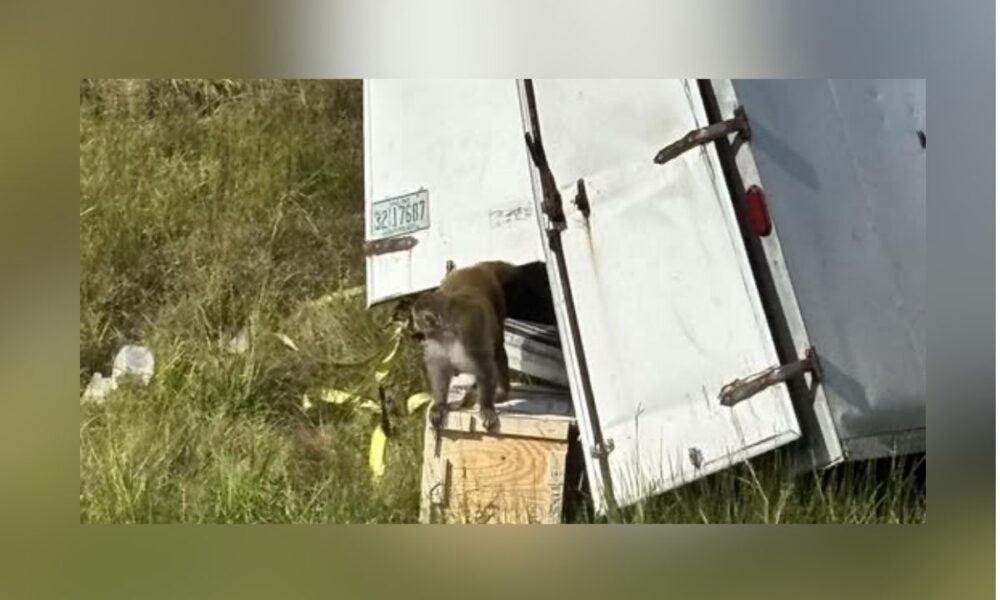Authorities in Mississippi searched fields along Interstate 59 on Wednesday for three rhesus macaques that escaped when a truck carrying 21 of the primates overturned a day earlier in Jasper County.
The crash occurred about 75 miles east of Jackson. Animal experts from Tulane University examined the trailer Tuesday evening and confirmed that three monkeys remained missing, the Jasper County Sheriff’s Department said.
Most of the escaped animals were killed at the scene.
The department initially acted on the driver’s report that the monkeys were aggressive, carried hepatitis C, herpes, and COVID, and required protective gear to handle.
“The driver of the truck told local law enforcement that the monkeys were dangerous and posed a threat to humans,” the sheriff’s department said. “We took the appropriate actions after being given that information from the person transporting the monkeys.”
Tulane University disputed the claims.
“The primates in question were not carrying any diseases and had received recent checkups confirming that they were pathogen-free,” the school said on Wednesday, NBC News reported.
The university added that the monkeys belonged to another entity, were not being transported by Tulane, and had not been exposed to any infectious agent.
The school’s National Biomedical Research Center in Covington, Louisiana, provides primates to research organizations “to advance scientific discovery,” but the monkeys in the crash were “not owned by Tulane, and not in Tulane’s custody,” the university said, per Fox 13. A Tulane team was sent to assist local authorities.
Searchers wearing masks, face shields, gloves, and white coats scoured tall grass near crumpled crates marked “live animals.” The truck was no longer at the scene.
The Mississippi Department of Wildlife, Fisheries and Parks warned that rhesus macaques are known to be aggressive. Residents who spot the animals should call 1-800-BE-SMART and refrain from approaching them.
The Mississippi Highway Patrol is investigating the crash. State veterinarian Dr. James Watson confirmed the monkeys had proper transport documents and a certificate of veterinary inspection.
An animal disposal firm removed carcasses from the site. The remaining caged monkeys were returned to Louisiana.


